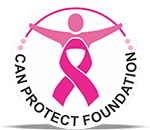Cervical cancer is the simplest gynecologic cancer to prevent, with regular screening tests and follow-up. Two screening tests can help reduce cervical cancer or find it early—
- The Pap test (or Pap smear) looks for precancers, cell changes on the cervix that might become cervical cancer if they are not treated appropriately.
- The HPV test looks for the virus (human papillomavirus) that can lead to these cell changes.
The Pap test is advised for all women between the ages of 21 and 65 years old, and can be carried out in a doctor’s office or clinic. While in the Pap test, the doctor will use a plastic or metal instrument, known as a speculum, to widen your vagina. This helps the doctor examine the vagina and the cervix, and collect a few cells and mucus from the cervix and the region around it. The cells are then put on a slide or in a bottle of liquid and sent to a laboratory. The lab will check to be convinced that the cells are normal.
If you get the HPV test combined with the Pap test, the cells gathered during the Pap test will be tested for HPV at the lab. Speak to your doctor about whether the HPV test is right for you.
You should start getting regular Pap tests at age 21. The Pap test, which monitors for cervical cancer, is one of the most trusted and effective cancer screening tests available.
The only cancer for which the Pap test screens is cervical cancer. It does not screen for ovarian, uterine, vaginal, or vulvar cancers. So even if you have a Pap test consistently, if you observe any signs or symptoms that are uncommon for you, see a doctor to find out why you’re having them. If your Pap test results are normal, your doctor may tell you that you can wait for more years until your next Pap test.
How to Prepare for Your Pap Test
You should not schedule your Pap test for a time when you are having your period. If you are planning to have a Pap test in the next two days—
You should not douche (rinse the vagina with water or another fluid).
You should not use a pad.
You should not have sex.
You should not use a birth control foam, cream, or jelly.
You should not use a medicine or cream in your vagina.
